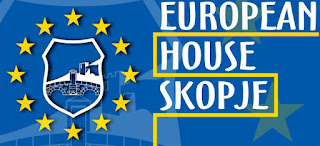"We need to see a convincing track record of reforms on the ground", including police reforms and the fight against corruption and organised crime, said European Enlargement Commissioner Olli Rehn when he met Gabriela Konevska-Trajkovska, Deputy Prime Minister in charge of European Integration of the Republic of Macedonia in Brussels on April 16. The Commissioner described the talks as friendly and constructive, and he re-confirmed the EU perspective for the country.
"There is a need to improve the political climate in the country, and to demonstrate a clear commitment to the Ohrid framework agreement", said Rehn. He insisted that developing understanding and dialogue between the government and the opposition is essential to ensure the proper functioning and stability of key institutions. "I encourage all parties to make further efforts to find compromises, to walk the last mile, so that this political dialogue which has been intensified in last couple of days will lead to concrete results and facilitate speedy adoption of laws and reforms of the judiciary, police and public administration".
He added that the EU's Instrument for Pre-Accession Assistance made provision for a qualitative and quantitative increase in support for the Republic of Macedonia, so it was important that the country implemented the appropriate national mechanisms correctly. Preparation had got off to a good start, but administrative capacity needed reinforcing to permit decentralised financial management, he said. It was important too that recent changes in the country's Secretariat for European Affairs should have "no negative ramifications".
Gabriela Konevska-Trajkovska confirmed that progress on the EU agenda was a high priority for her government, and the recently-agreed National Programme for the Adoption of the Acquis envisaged full harmonisation with EU rules by 2010. She said there was wide national support for accession and for regional cooperation. The reorganisation of the Secretariat for European Affairs was aimed, said the Deputy Prime Minister, at "providing the best structure for the mid-term".
Search This Blog
Subscribe to:
Post Comments (Atom)
European House Skopje is an NGO in Macedonia that promotes European values, democracy, human rights, and regional cooperation. Its...

-
Small Business Ideas You Can Run From Home If you have a desire to start a home-based business, you’re part of a growing trend. As a matter ...
-
Decentralising Structural Funds' management to the regional level Decentralised programming = Decentralised implementation? Or, Why (f...
-
• Chapter 1: Doing Business In Macedonia • Chapter 2: Seling Products and Services • Chapter 3: Leading Sectors for Export and Investment • ...
No comments:
Post a Comment